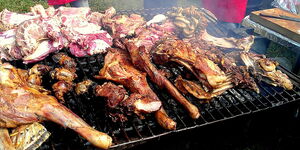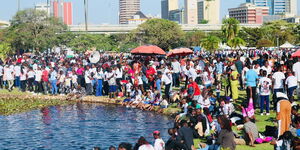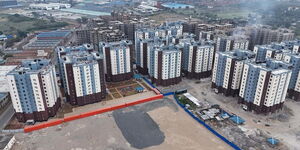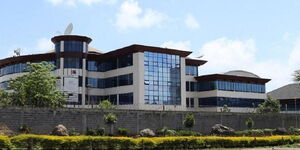This week, the counties of Mombasa and Kilifi implemented a contentious ban on the trade of muguka, a stimulant leaf popular in Kenya.
Our analysis reveals that this prohibition could have far-reaching economic and social consequences, potentially costing farmers up to Ksh1 billion per month and slashing over Ksh300 million from the revenue streams of both Mombasa and Embu counties.
While it is impossible to put a price on the lives of Kenyans, the ramifications of Mombasa’s muguka ban extend beyond health concerns.
The financial fallout is poised to affect service delivery and livelihoods in both counties.
Over 2,000 traders in Mombasa now find themselves in limbo, while more than 65,000 farmers in Embu are scrambling for alternative markets for their produce.
Embu Governor Cecily Mbarire, on May 24, highlighted that the muguka sector generates approximately Ksh22 billion annually.
Our in-depth investigation indicates that Mombasa alone accounts for Ksh12 billion of this total revenue. This points to the critical role Mombasa plays as a market for muguka.
Historical data reveals that in 2019, five canter lorries of miraa and muguka entered Mombasa daily. As of May 2024, farmers from Embu and Kirinyaga are delivering 36,000 kilogrammes of muguka to Mombasa each day.
According to a recent health committee report, about 31.4 per cent of Mombasa's residents, primarily aged between 19 and 44, are regular users of muguka.
This demographic represents Kenya’s most productive age group, highlights the potential societal impact of the ban.
Mombasa, with a projected population of 1.3 million, has approximately 393,000 muguka users. The city has emerged as the largest market for muguka in Kenya, providing significant daily revenue to farmers.
Mbeerembu Miraa Cooperative Union chairman Jervasius Nyombyekoth estimates that farmers earn Ksh10.8 million daily from Mombasa, translating to Ksh3.63 billion annually and Ksh302 million monthly.
Our analysis reveals that farmers could lose up to Ksh1 billion monthly due to the ban.
This figure is derived from the daily delivery of 36,000 kilogrammes of muguka to Mombasa, with prices ranging between Ksh500 to Ksh1,000 per kilogramme.
On the higher end, this volume translates to over Ksh1 billion monthly revenue, a significant economic driver for the farmers.
To contextualise, Ksh1 billion is comparable to the amount the Ministry of Health allocated this week to procure a year’s supply of vaccines for infants.
It also represents nearly a third of what some counties receive in equitable share allocations. Thus, the ban’s economic impact is substantial.
The ban is also set to cause a significant dent in Mombasa’s revenue collections.
Reports indicate that over 2,000 individuals are involved in the muguka supply chain in Mombasa, including wholesalers, retailers, and transporters.
The county stands to lose over Ksh336 million in cess from muguka imports alone, not accounting for parking fees and additional cess collected from traders.
Despite recent negotiations that led to a reduction in licensing fees for miraa and muguka dealers, the ban was enforced.
A three-tonne lorry previously paid Ksh30,000, a pick-up Ksh20,000, and a handcart Ksh10,000. Additional charges included Ksh1,500 per box and Ksh1,200 per sack of miraa.
In Embu County, Governor Mbarire anticipates a loss of over Ksh13.2 million in revenue collections.
This figure is based on the monthly collection of Ksh1.1 million from over 3,000 traders in 2023.
Muguka cultivation, involving 65,000 farmers, is a critical income source for the region, second only to coffee and tea. Individual farmers can earn up to Ksh30,000 weekly from muguka sales.
The Embu county government has invested over Ksh60 million in supporting muguka farmers and traders.
The ban’s implementation in Mombasa, initiated under Governor Abdullswamad Sherrif Nassir, comes amid rising concerns over mental health and substance abuse linked to muguka use.
With Kilifi County also banning muguka and other coastal counties considering similar measures, the future of the crop remains uncertain.
The widespread economic and social impact of these bans could reshape the livelihoods of thousands and alter the financial landscape of entire regions.












